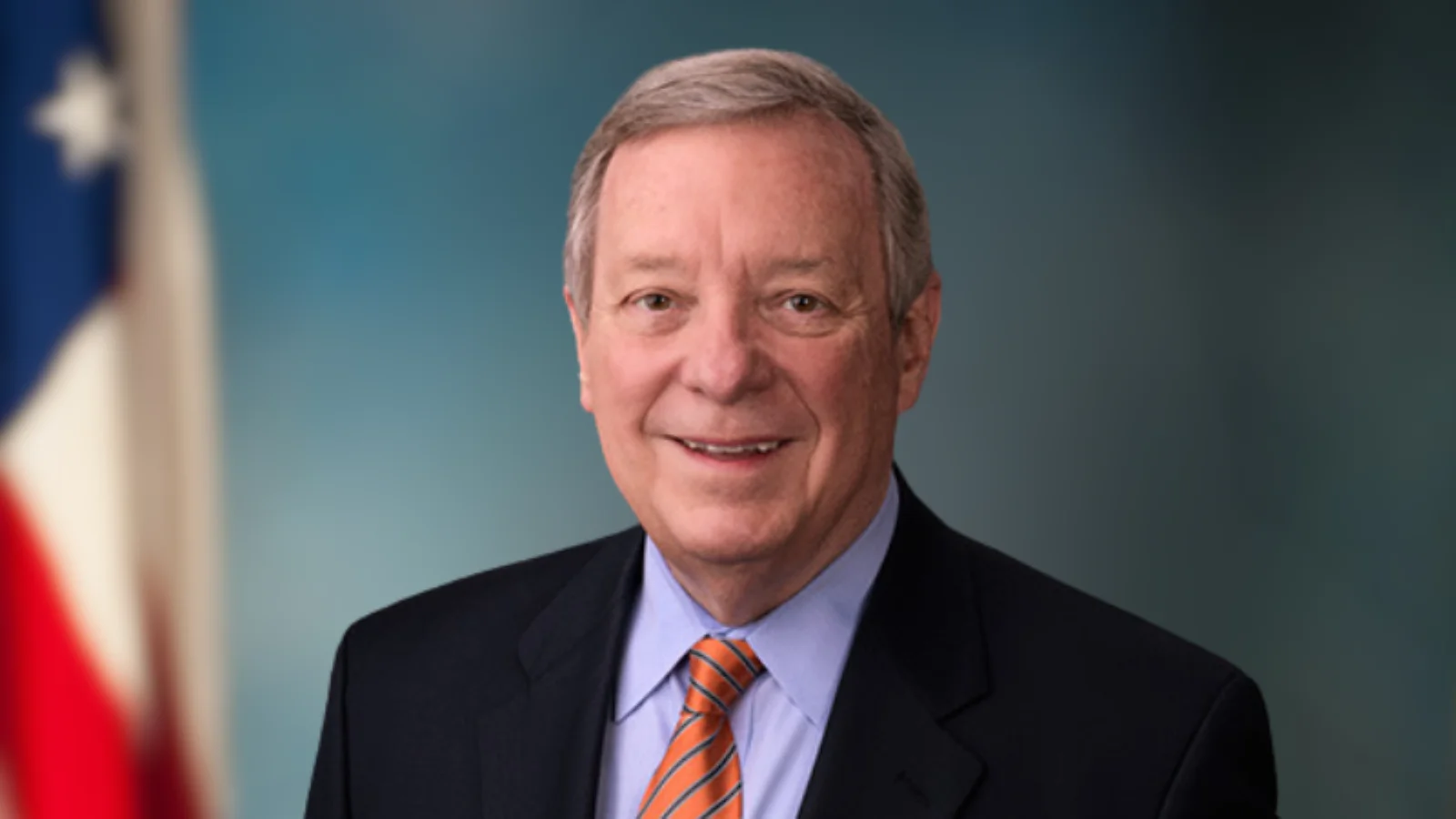U.S. Senate Democratic Whip Dick Durbin, who serves as the Ranking Member of the Senate Judiciary Committee, has raised concerns with U.S. Immigration and Customs Enforcement (ICE) Acting Director Todd Lyons regarding repeated denials of congressional access to ICE facilities. Durbin highlighted multiple unsuccessful attempts by himself and other members of Congress to visit the Broadview ICE Facility in Illinois.
In a letter addressed to Acting Director Lyons, Durbin wrote: “I write to object to your unprecedented, unlawful, and unacceptable decision to deny Members of Congress access to the U.S. Immigration and Customs Enforcement Broadview Processing Center in Broadview, Illinois. The Trump Administration has increasingly restricted access to facilities used to detain noncitizens, including by denying Members of Congress access to the Broadview ICE Facility. I urge you to comply with the law and reverse this decision, allowing me and my colleagues to conduct desperately needed oversight of the Broadview ICE Facility.”
Durbin referenced several legal precedents supporting congressional oversight authority, including McGrain v. Daugherty, Watkins v. United States, Barenblatt v. United States, as well as language from appropriations laws.
He criticized recent policy changes that have limited congressional visits. “In June, ICE issued an updated guidance memorandum requiring Members of Congress to give at least 72 hours’ notice before an immigration facility visit. Since then, ICE appears to have further restricted its policy through a statement on the ICE Congressional Relations website, which imposes a seven-day advance notice policy, with exceptions at the discretion of Department of Homeland Security (DHS) Secretary Kristi Noem. Most recently, ICE has denied Members of Congress and congressional staff access to facilities due to the government shutdown. In addition to these restrictions, ICE has regularly prevented or delayed congressional access to processing facilities used to detain noncitizens for prolonged periods, even as detainees report squalid conditions, overcrowding, inhumane treatment, and lengthy stays,” Durbin stated.
Durbin described reports from within the Broadview facility: “The Broadview ICE Facility is no exception. Although designed as a short-term service processing facility, this year ICE has expanded the maximum number of hours that noncitizens could be held at Broadview and other processing centers … in September, 143 individuals were detained at Broadview for two days or more … An American citizen detained during peaceful protests reported that immigration detainees are ‘jammed packed’ into rooms designed for short-term processing … Detainees report being provided little food, water, and hygiene products and having limited access to medication … The facility has been repeatedly described as a ‘black hole’. Attorneys and family members alike cannot reach, respectively, their clients and loved ones in the facility; detainees are simultaneously prevented from contacting anyone until they have been transferred to another facility, often days later. These concerns have only grown as DHS has used the facility to support its reckless and dangerous immigration enforcement operations in Illinois.”
After noting his previous visits under earlier administrations in 2013 and 2014—and regular visits under both Democratic and Republican leadership—Durbin added: “The current Trump Administration is the only Administration that has repeatedly denied me and other Members of Congress access to a detention facility. In fact, I have requested to visit the Broadview ICE Facility and meet with detainees there four times. In each instance, I have been denied access.”
He concluded his letter by stating: “ICE officials’ attempts to impede oversight of the Broadview ICE Facility are unconstitutional. They also raise serious questions as to what ICE is attempting to hide at this facility, and as a duly elected representative of the people of Illinois it is my job to find out. I urge you to grant Members of Congress prompt access to the Broadview ICE Facility and provide the American people transparency into the conditions there.”
In response to increased federal law enforcement presence in Chicago—referred by federal authorities as “Operation Midway Blitz” and “Operation At Large”—and threats by President Trump’s administration regarding military deployment without state consent or request from local leaders such as Governor JB Pritzker or Mayor Brandon Johnson—Durbin took several actions:
He met with state officials including Governor Pritzker; Chicago Mayor Brandon Johnson; local leaders; community organizations; mayors such as Dave Kaptain (Elgin) and Katrina Thompson (Broadview); Alderman Mike Rodriguez; student organizers; Latino officials; among others.
Durbin secured a commitment from Senate Judiciary Committee Chairman Chuck Grassley for DHS Secretary Kristi Noem’s testimony under oath about these operations.
He led all Democratic members from Illinois in writing President Trump urging him not deploy troops into Illinois after public statements indicated plans involving both Illinois’ National Guard and Texas National Guard.
Durbin led efforts demanding DHS end both named operations over concerns about due process violations during raids—including indiscriminate arrests—and submitted questions about use of social media influencers promoting raids or use of military equipment like drones.
As part of legislative action he introduced amendments alongside Senator Duckworth aimed at increasing congressional oversight over domestic troop deployments through proposed changes within annual defense authorization legislation.
He also joined Duckworth calling on federal agencies like DOD/DHS not misuse infrastructure such as Chicago Harbor Lock for staging law enforcement activity related these operations.
Other steps included seeking meetings with regional field directors (such as Russell Hott), pressing for body camera compliance among agents involved in civil immigration enforcement actions within Illinois per agency policies/orders from federal courts.
Durbin also attempted multiple times—with Senator Duckworth—to conduct direct oversight visits at Broadview but was denied entry each time despite statutory authority permitting such inspections.
Additionally he visited Naval Station Great Lakes following reports it was being used logistically by DHS agents—where he sought briefings but was denied meetings with DHS officials present on site.
Alongside 26 Senators he called upon Department of Defense Inspector General’s office for an inquiry into legality surrounding domestic troop deployments ordered by Trump administration citing impacts on public trust/resources/costs.
Durbin pressed Secretary Noem on changes around hiring standards/recruitment messaging within ICE following increases in agency funding—raising questions about possible employment practices post-January 6 events—as well questioning involvement/influence around operational decisions affecting communities like Chicago.
Meetings were also held with Navy Secretary John Phelan ensuring military resources would not be allocated beyond logistical support such as office/parking/storage space unrelated directly conducting immigration raids within city limits.
During committee hearings Durbin questioned Attorney General Pam Bondi about rationale behind potential military deployments while expressing concern over lack accountability/transparency from executive branch officials when queried by lawmakers.
On multiple occasions Durbin spoke on Senate floor criticizing tactics used during enforcement operations—including personal stories highlighting impact on families affected by detentions—and hosted forums examining broader constitutional implications stemming from administration’s approach toward immigrant communities/oversight responsibilities.









